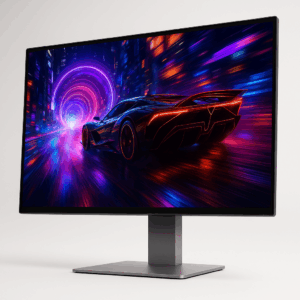How the Work-From-Home Trend is Transforming the PC Industry

Analyze how the shift to remote work has reshaped the PC industry, with increased demand for mobile computing devices and collaboration tools.
The work-from-home (WFH) trend, which surged during the COVID-19 pandemic, has permanently reshaped the PC industry. As more companies embrace remote work or hybrid models, there has been a corresponding increase in demand for laptops, webcams, docking stations, and other productivity tools that facilitate remote collaboration. In response, PC manufacturers have been quick to adapt their product offerings to meet the needs of a growing remote workforce.
Increased Demand for Laptops and Mobile Devices
In the WFH era, employees need portable devices that allow them to work from anywhere. Laptop sales have surged, especially in the business sector, as companies outfit their teams with powerful yet lightweight devices. Ultrabooks and hybrid laptops, offering both power and flexibility, have become the devices of choice for remote workers who require a balance of mobility and productivity.
The Importance of Remote Collaboration Tools
Beyond hardware, software solutions that facilitate communication and collaboration have become essential. Tools such as Microsoft Teams, Slack, and Zoom have seen a dramatic increase in usage, driving the need for PCs equipped with the necessary hardware (e.g., high-quality webcams and microphones) to ensure smooth virtual meetings.
Security Concerns in a Remote-First World
With the rise in remote work, cybersecurity has also become a significant concern. Employers are investing in secure PC systems that come pre-installed with advanced security features, including biometric logins, VPNs, and multi-factor authentication. Endpoint security solutions, such as cloud-based antivirus software and encrypted communication tools, are becoming standard for businesses looking to protect sensitive data in a remote environment.
A New Era for Remote Work and Computing
The work-from-home revolution has brought about a lasting transformation in the PC industry, shifting the focus towards portable, high-performance devices that cater to the demands of remote work. As businesses and employees continue to embrace flexible work arrangements, the need for mobile workstations with seamless connectivity, powerful processing capabilities, and collaborative tools has become more pronounced than ever. In response, PC manufacturers are creating products specifically designed for remote workers, emphasizing features like longer battery life, portability, and enhanced security.
In the years ahead, the work-from-home trend is likely to remain a key driver of innovation within the PC industry. Companies will continue to invest in solutions that enable their employees to work efficiently from anywhere, leading to further advancements in cloud computing, video conferencing tools, and secure remote access technologies. At the same time, the increasing use of artificial intelligence in productivity tools and cybersecurity will shape how businesses manage and protect their remote workforces.
Moreover, with the lines between personal and professional lives becoming increasingly blurred, PCs that offer a balance between work functionality and entertainment will continue to thrive. As the demand for hybrid devices and all-in-one solutions grows, the PC industry will evolve to provide even more versatile options that cater to both work and leisure. Ultimately, the work-from-home era has reshaped the way we think about personal computing, and this trend will continue to influence the direction of the PC market for years to come.



